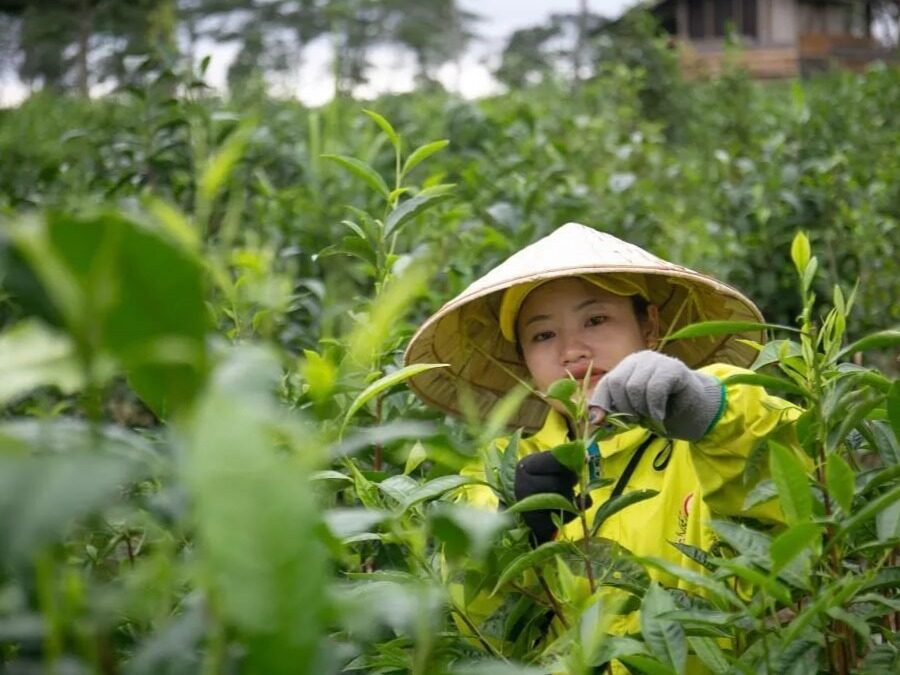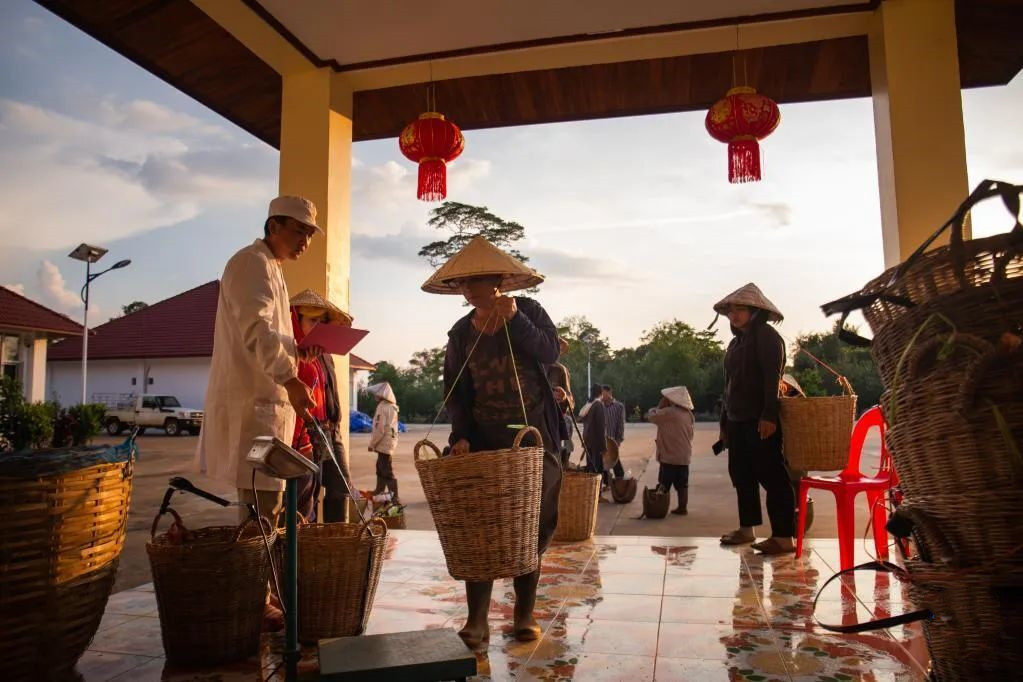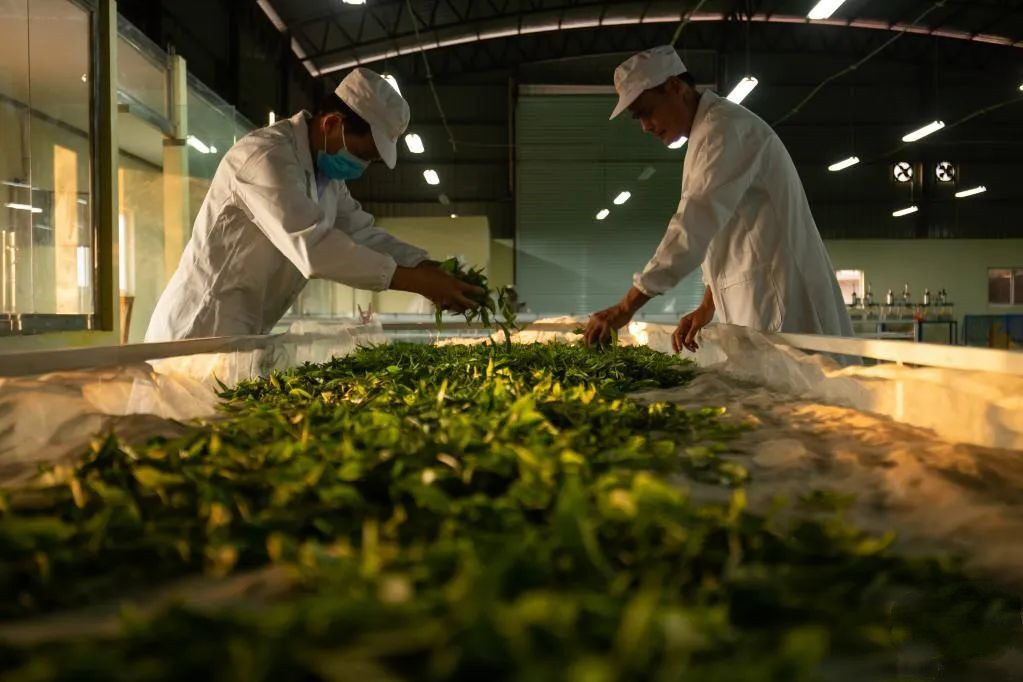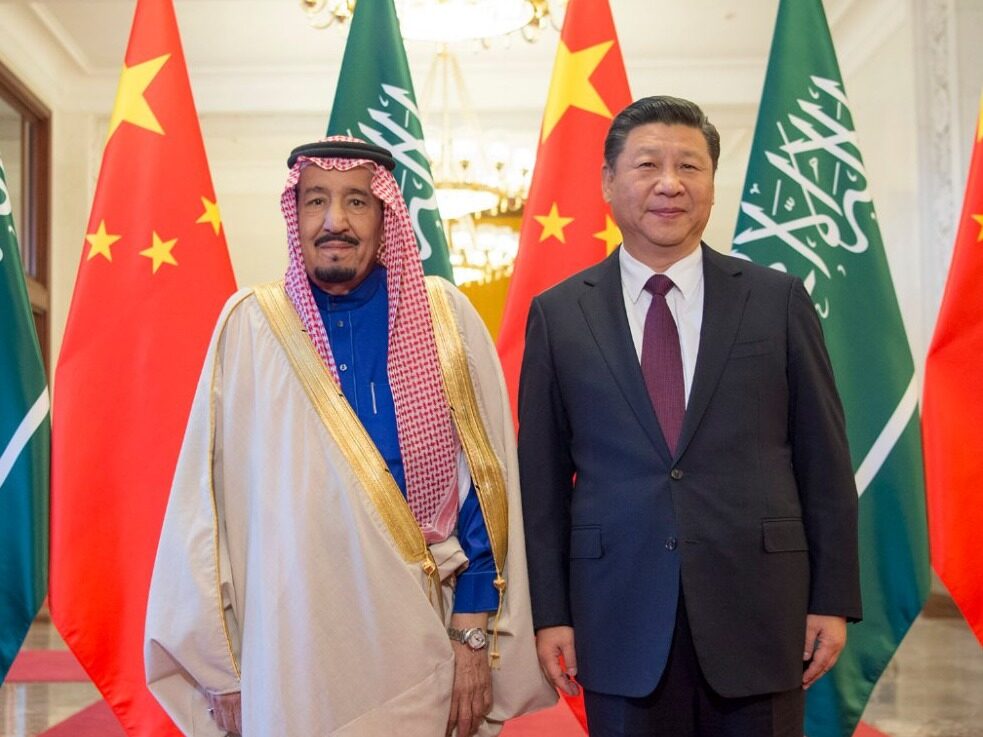- The long-standing tea culture of China and the thousand-year-old tea of Laos are perfectly integrated, giving off a charming charm

For four years, 24-year-old Joey has been accustomed to taking a Chinese company's "tea-picking bus" to pick tea in the tea garden on the Borofen Plateau in southern Laos before the rainy season in June each year. He said that working in a nearby factory can earn about 1.5 million to 2 million kip (about 820 to 1,090 yuan) a month, and the income of tea picking is much higher, and more and more villagers come to pick tea.
The Chinese-funded company Laos 36 Manor Co., Ltd. has developed local ancient tea tree resources in the southern plateau of Laos in recent years, made tea with Chinese craftsmanship, and relies on the tea industry to drive local people out of poverty and become rich.
Sai, 30, is a company gardener and has been in charge of tea garden management for four years. He said that compared to working in a coffee farm before, the income here is high and the living conditions are much better.
Eight years ago, Laos 36 Manor Co., Ltd. discovered ancient tea trees on the Borophan Plateau, and moved them to a tea garden covering an area of 150 hectares. . What makes these two young Laotians happy is not only the increased income, but also the industrial development of the company makes them full of hope for the future.

Joey said that in the past, local tea was sold to other places for processing, and the price was not high. Now Chinese companies are making tea locally, making brands, and running tea gardens very well. Sai said that pesticides and fertilizers were never used in the process of growing tea, and the products belonged to the original ecology and pure wild. This organic cultivation is satisfactory.
Kan Zhan, who has been the head of the village where the tea garden is located since 1999, told reporters that the village's economic development was very backward before, and 50% to 60% of the farmers were poor households. The local area does not pay attention to tea trees. After 36 Manor came to buy tea leaves at higher prices, the villagers switched to planting tea trees one after another, expanding the scale of tea planting.
"We have lived a life of abundant food and clothing. Before, the daily income of the villagers was about 50,000 kip. After the 36 Manor came to the village, the daily income exceeded 100,000 kip. The village has changed a lot in recent years. Now there are 133 families, and the poor households have only 100,000 kip. There are four or five households." Kan Zhan said.
According to Hu Xiaofeng, director of the tea factory, the company combines the characteristics of local tea and Chinese craftsmanship, not only to make tea from its own tea garden, but also to encourage nearby villagers to plant tea trees, and the tea factory buys the tea from the villagers. "In recent years, local people have built new houses by selling tea." Hu Xiaofeng said that such targeted poverty alleviation has driven local economic development.

The tea of this Chinese-funded company has won the attention and praise of Laos. "After 36 Manor came to Basong County, it has made important contributions to social and economic development and helped local people get rid of poverty," Pippen, the mayor of Basong County, told reporters, "I learned about China's poverty reduction policies through various channels, and tried to We want to apply it to the poverty alleviation work in Basong County. Since 36 Manor came to Basong County, we have encouraged the people to provide land and labor, and the manor has provided technology, capital and market. Now this project has successfully helped most villagers get out of poverty. "
Ben Yad, Director of the Industry and Trade Department of Champassak Province, told reporters that Laos and China are also constantly exchanging experiences in poverty reduction. 36 Manor has created a large number of employment opportunities for the local area, driven the economic development of the area, and enabled the local people to live a well-fed life. Editor/He Yuting
Comment
 Praise
Praise
 Collect
Collect
 Comment
Comment
 Search
Search














Write something~